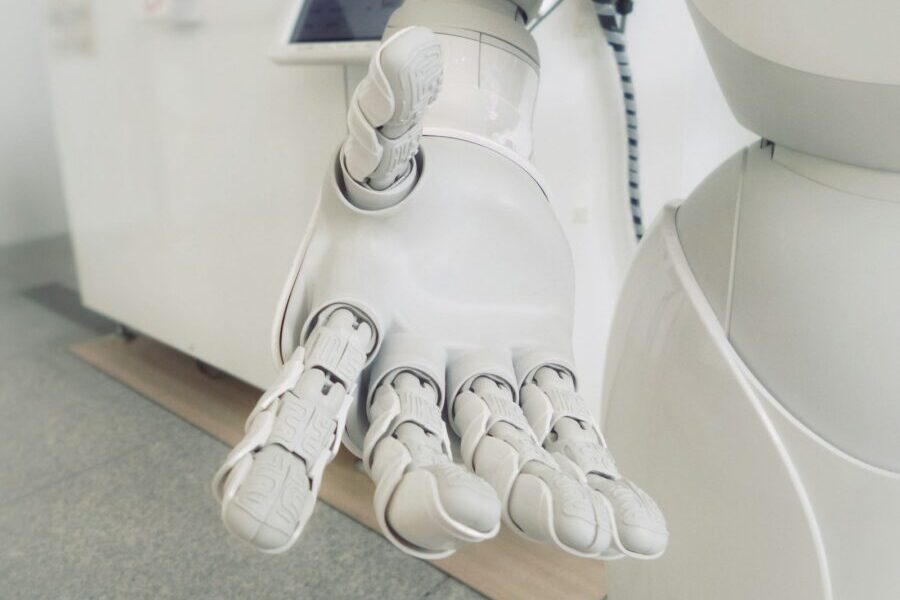In the rapidly evolving workplace landscape, the integration of Artificial Intelligence (AI) has emerged as a force for bettering wellbeing at work. AI offers numerous opportunities for organisations to foster a better working culture and offer greater wellbeing support for their employees, but it is crucial to adopt a strategic and human-centric approach to maximise the benefits of AI.
Here are my top dos and don’ts for AI and mental wellbeing in the workplace.
Don’t view AI as a replacement of mental health support
Artificial intelligence should not be viewed as a panacea for mental health support within the workplace. It is essential to recognise the limitations of AI when it comes to understanding and addressing complex human emotions. While AI systems excel in offering solutions based on recognised patterns, they inherently lack the capacity for empathy and emotional comprehension essential in mental health interventions.
Human emotions are intricate and multifaceted, requiring nuanced understanding and personalised responses that only human interaction can provide. Mental health issues encompass a range of experiences ranging from anxiety and depression to trauma and grief, each necessitating a tailored and empathetic approach.
Furthermore, the efficacy of mental health intervention relies heavily on the establishment of trust, rapport, and confidentiality between the individual and their support provider. Therefore, organisations must prioritise fostering a supportive environment that encourages open communication and access to qualified mental health professionals rather than relying on AI-driven solutions.
Don’t use AI for surveillance of employee productivity
Additionally, companies should not buy-in to using AI to monitor employee productivity. While the digitalisation of workplaces can offer insights into workflow efficiency and performance metrics, the indiscriminate monitoring of employee activities can veer into surveillance and an authoritarian management of people.
Invasive management practices fundamentally undermine the principles of trust and autonomy that are essential in fostering a healthy workplace culture. Employees expect a degree of privacy and autonomy in carrying out their responsibilities free from micromanagement. The imposition of AI-powered surveillance systems not only erodes this trust between employers and employees but also engender feelings of unease among employees, in turn taking its toll on employee morale and mental wellbeing.
Rather than resorting to intrusive measures, organisations should focus on fostering a culture of trust, autonomy, and accountability, empowering employees to manage their responsibilities effectively while respecting their privacy and independence.
Do use AI for automation of time-consuming tasks
One of the most tangible benefits of AI in the workplace lies in its ability to automate time-consuming and repetitive tasks, thereby freeing employees to focus on more strategic work. Administrative tasks such as scheduling meetings, transcribing notes, and conducting research often makes up a significant portion of employees’ day-to-date responsibilities. These tasks often consume a disproportionate amount of time and cognitive bandwidth that could instead be used to engage in activities that drive innovation and organisational growth.
By using AI, organisations can streamline administrative workflows and optimise resource allocation across departments. The best way to use AI tools is having a goal in mind for what needs to be made easier or quicker, and work backwards from there to find the right system or tool for it.
Do take advantage of learning and development benefits of AI
AI is also making learning and development easier, more efficient, and more engaging for users. This new era in L&D encourages professional growth and skill enhancement for organisations.
Platforms designed for learning and development represent a shift in professional development, offering personalised and immersive experiences tailored to individual learning styles and preferences, where creating sustained engagement is key. AI powered platforms can curate customised learning pathways, recommend relevant resources, and facilitate interactive learning experiences that engage and motivate employees. By embracing AI-driven learning solutions, organisations can cultivate a culture of continuous learning and skill enhancement empowering employees to thrive in their careers.
Do use AI to support a healthier work-life balance
In today’s fast-paced and interconnected world, the concept of work-life balance has become increasingly elusive for many employees whilst striking this balance is essential in supporting employees and their mental health. The proliferation of digital technologies and continuous connectivity has blurred the boundaries between work and personal life, exacerbating the challenging of managing time effectively and maintaining a healthy equilibrium.
Rather ironically, these technologies can be leveraged to restore this balance with AI-enabled time management tools. Employees can then be presented with metrics that help gain actionable insights into their time management habits, supporting them to make informed decisions on how to better optimise their work-life balance.
From an organisational perspective, it’s more important now than ever before for senior leadership in organisations to set the tone in prioritising employee mental wellbeing in workplaces. Organisational leaders should be working very hard to ensure all employees have access to resources to be able to use artificial intelligence to level-up their professional performance and ease work pressures, ensuring better mental wellbeing at work.
Nicole Seredenko
As Head of AI Product & Insights, Nicole leads the product development and strategy for DEJIBot, an AI product developed in partnership with Green Park. She has advised Fortune 50 executives across the retail, FMCG, market research and luxury sectors on Artificial Intelligence's business and social impact.



